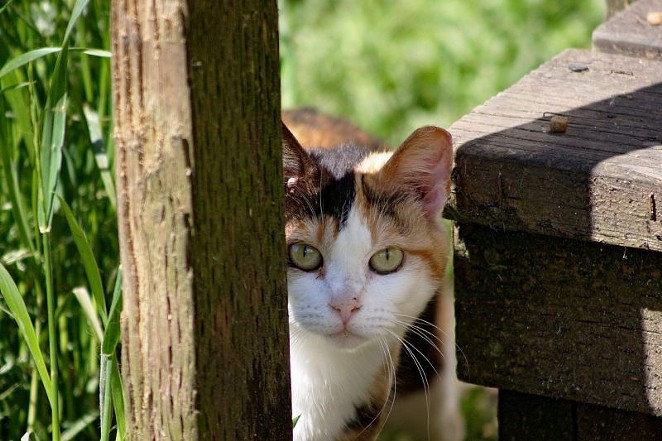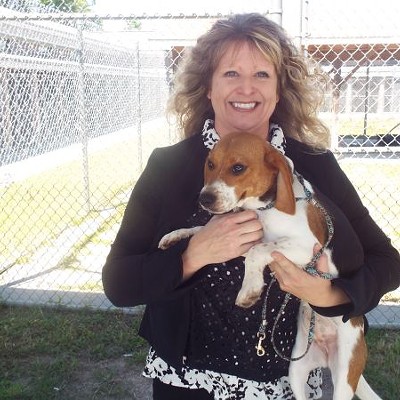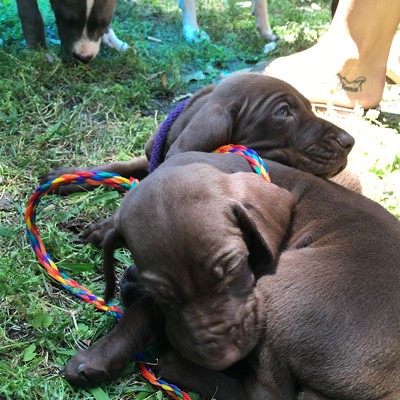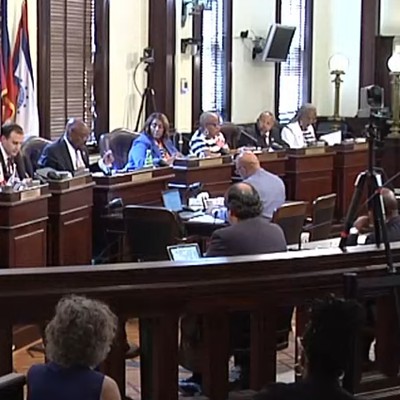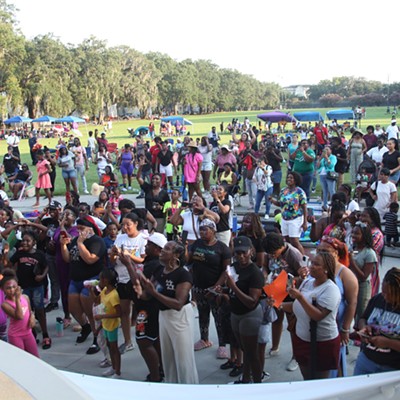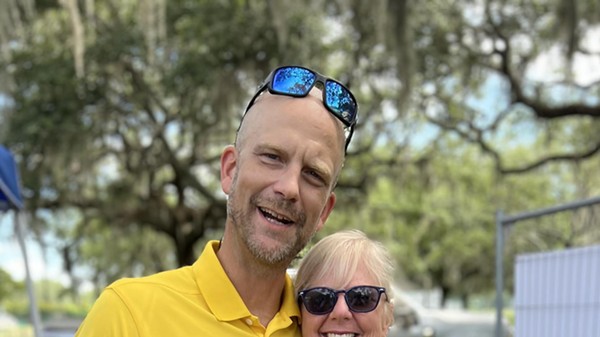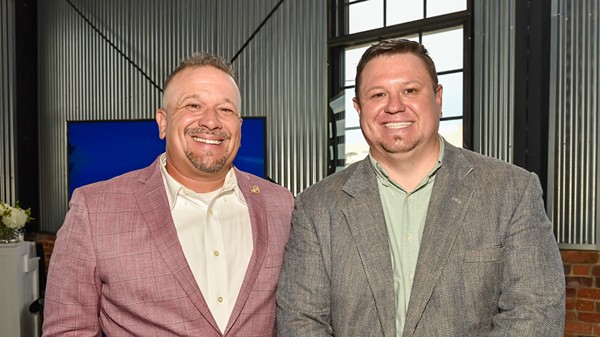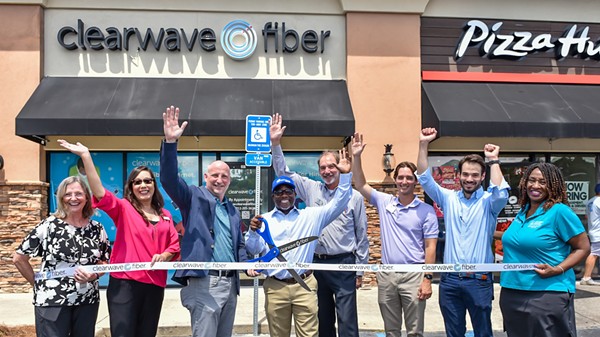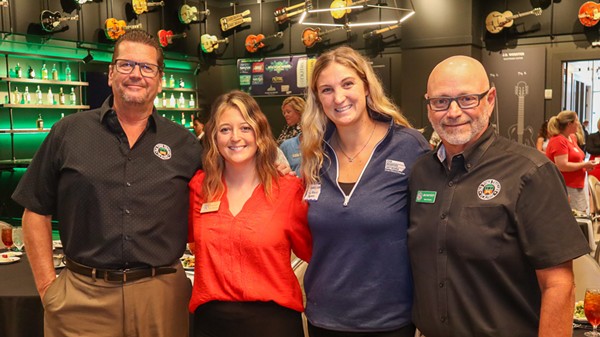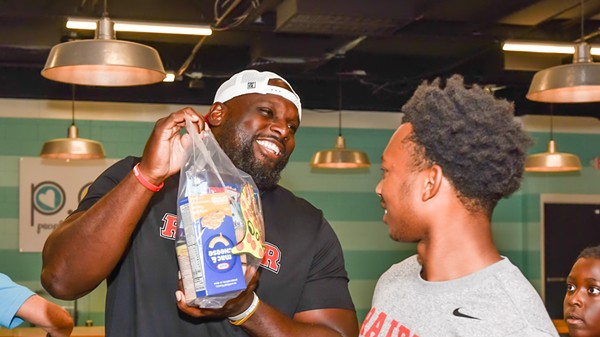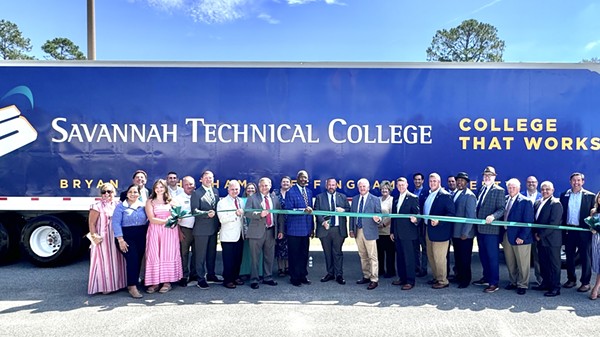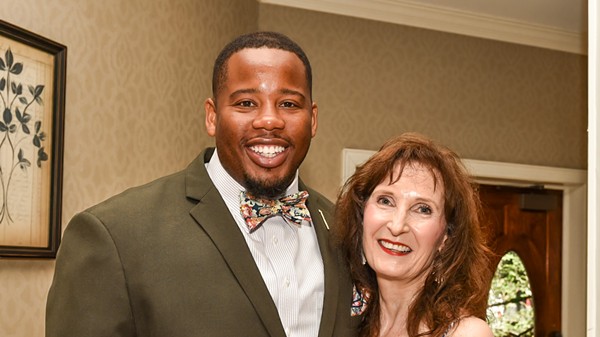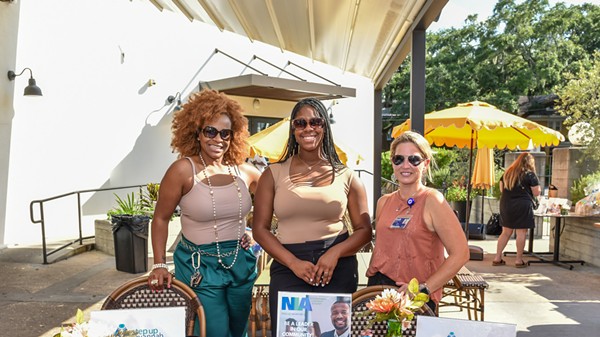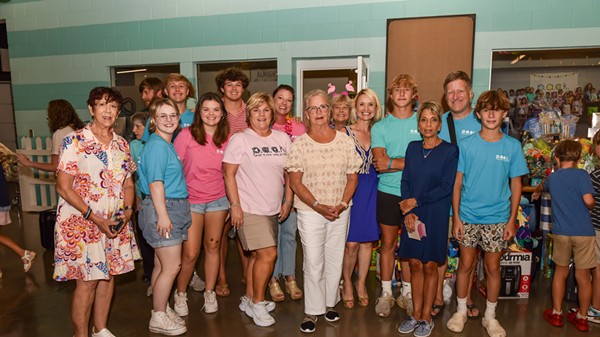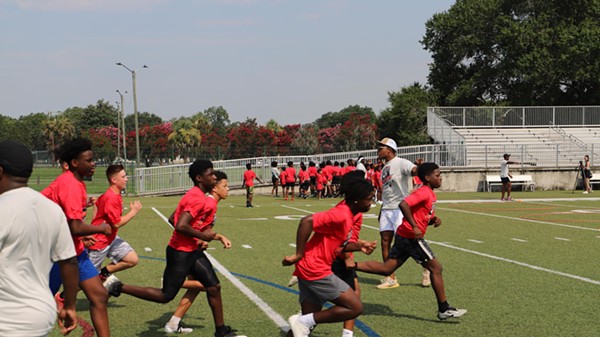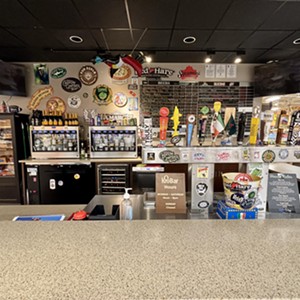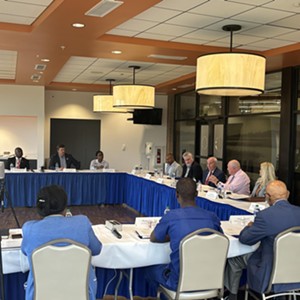WHILE THE proposed fire fee and City budget were the big buzz at the Dec. 7 City Council meeting, changes in the city’s animal ordinance also caused a significant roar.
A motion to repeal and replace Part 9, Chapter 5 of the current ordinance with portions of the Chatham County regulations adopted in May has brought disagreement between the animal welfare community’s two most influential entities, Chatham County Animal Services and the Humane Society of Greater Savannah (HSGS.)
The changes, which mostly focus on defining dangerous dogs and backyard breeding practices, align county and city regulations for uniform enforcement by Animal Services, which also serves city residents. Simplified dog registration, acceptable outdoor structures for canines, service vs. emotional support animals and a rabies database are other features of the proposal.
“We’ve also recognized the three year rabies vaccination instead of one to prevent over-vaccination,” explains Kerry Sirevicius, Director of Animal Services. “But most importantly, this really defines menacing dogs and takes a hard stance on breeder regulations so we can go after backyard dog breeders. These are issues that need to be addressed immediately in our community.”
Little of the proposal presented to council on Thursday is dedicated specifically to cats, other than a stipulation that pet felines allowed outdoors must be spayed or neutered (the requirement does not apply to indoor cats). It’s this omission that has raised hackles with the Humane Society, which urged Mayor DeLoach and the council to postpone the first reading and vote of the proposed ordinance changes.
“Our main objection is that this proposal makes no mention of community and feral cats, which is a huge challenge,” says HSGS Executive Director Michelle Thevenin, echoing a letter sent to the council on Nov. 17. “We’re opposed to any proposal that does not include a solid plan for dealing with our community cat problem.”
Savannah and Chatham County has dozens of pockets that are overrun with cats, some abandoned by their owners and others that are completely wild.
Many of these clusters are fed and cared for by individual residents and small organizations that employ the practice of Trap/Neuter/Return (TNR) to try and stabilize cat colonies. But these efforts hardly make a dent without unified municipal backing, says Thevenin.
“TNR is considered best practice by the National Humane Society and the ASPCA for dealing with community cats, but this proposal contains no mention of TNR and actually criminalizes it by banning the feeding of these cats on private property without permission and on public property entirely,” she continues.
Animal Services has responded to HSGS’ position with the clarification that the city ordinance will be amended in two phases and that a detailed strategy for dealing with community cats is forthcoming.
“In this first phase, we needed to address the immediate threat of dangerous dogs and breeding practices and didn’t want it delayed by the cat problem. In Phase 2, we will be introducing a life-saving initiative for cats, which is its own discussion,” says Sirivicius, adding that a pilot program has already gone into effect.
That is too vague for Thevenin, who says that concrete details need to be in place before the city adopts the ordinance changes.
“My concern is that we are aspirational, but there is no project plan, no date set,” she rues.
“I’d like to see language used by Cobb and DeKalb counties, which are places that have adopted best practices for dealing with community cats. We also need to have solid programming around community cats that manages the problem, and not in an underground way.”
Thevenin also decries the mandatory spay/neuter provision for outdoor pet cats, the first in the city’s history.
“It’s just not enforceable. Why criminalize it when you can invite compliance?” she asks, adding that HSGS’s low-cost Pet Fix clinic is homing in on its 10,000th spay/neuter surgery since opening in February 2016.
Sirevicius, who was hired by the county last year, has expressed dismay at the opposition by Humane Society, since the two entities had been working together.
She does, however, continue to have the support of the TNR community, with whom she has been “boots on the ground” with, helping to manage the cat colony at the Lazaretto Boat Ramp.
Marie Rodriguez of the Islands Feral Cat Project has saved over a thousand cats in the last 11 years this way and calls the agency under Sirevicius’ direction “the best Animal Control we’ve ever seen.”
“We are totally for this proposal and hope the city adopts it,” says Rodriguez. “We’re tired and burned out on raising money, and there will be less work and less fundraising to do if people have to spay and neuter their cats.”
She shares that a female cat goes into heat every four weeks and can birth a litter in 63 days. Rodriguez discounts criticism that mandatory spay/neuter is not enforceable.
“How can you know if you don’t try?” she asks.
While Cats in Da Hood coordinator Mariela Orellana-Nemanic isn’t sure about the feasibility of enforcement, she still supports the adoption of the amended ordinance.
“I love it. It’s a dream come true for every single person who cares about the animals and the people who have to deal with the cats mating or fighting for territory, the urine. It’s very disruptive,” says Orellana-Nemanic, who lends out traps and helps others handle stray and feral cats in their neighborhoods.
“This isn’t just about animal advocacy, it’s about quality of life for everybody.”
While details on Animal Services’ community cat plan are forthcoming, those who have been working to shut down local puppy mills have voiced strong approval for the amended ordinance.
“Consistency between the county and the city is imperative in order to put an end to backyard breeders and illegal flea market sales,” extols Carol Williamson, who runs Speaking Loudly & Often for Animals.
“These changes have been researched by many and are a welcome relief to those who work on behalf of animal welfare.”
The proposed ordinance changes were introduced at last Thursday’s City Council meeting for a first reading, where Thevenin again spoke out against the proposal, calling it “problematic and unenforceable.”
After acknowledging the need for addressing the community cat problem, District 6 Alderman Tony Thomas expressed concern that the language will “criminalize the little old ladies taking care of the cats.”
Citing unresolved questions about the measure, Mayor DeLoach said Council will delay its vote on the changes until after the first of the year.

